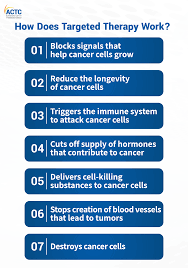Many patients who are undergoing chemotherapy treatment require both invasive and noninvasive tests to be conducted to rule out, or monitor, organ toxicities. Please select which routine tests are considered noninvasive: (Select all that apply)
Chest Xrays
Echocardiogram
Pulmonary function tests
Cardiac catherization
Correct Answer : A,B,C
A. Chest X-rays
Chest X-rays are imaging tests that provide detailed pictures of the inside of the chest, including the heart, lungs, and other structures. They are noninvasive as they do not involve any penetration or insertion into the body.
B. Echocardiogram
An echocardiogram is a noninvasive test that uses sound waves to create images of the heart. It provides information about the structure and function of the heart without the need for invasive procedures.
C. Pulmonary function tests
Pulmonary function tests (PFTs) are noninvasive tests that assess the function of the lungs. They include various breathing exercises and measurements to evaluate lung capacity and respiratory function.
D. Cardiac catheterization
Cardiac catheterization is an invasive procedure that involves the insertion of a catheter into the heart. It is not considered noninvasive.

Nursing Test Bank
Naxlex Comprehensive Predictor Exams
Related Questions
Correct Answer is A
Explanation
A. Adrenocortical insufficiency
Tapering glucocorticoid medications is done to prevent adrenocortical insufficiency, also known as adrenal insufficiency or adrenal suppression. Prolonged use of glucocorticoids can suppress the natural production of cortisol by the adrenal glands. Abrupt discontinuation of glucocorticoids can lead to adrenal insufficiency, characterized by symptoms such as fatigue, weakness, weight loss, and potentially life-threatening complications.
B. Thyroid storm
Thyroid storm is a severe and life-threatening condition related to overactivity of the thyroid gland. It is not a consequence of tapering glucocorticoids.
C. Acromegaly
Acromegaly is a disorder characterized by the excessive production of growth hormone, often caused by a pituitary tumor. It is not related to glucocorticoid tapering.
D. Hypertensive crisis
Hypertensive crisis refers to a severe and abrupt increase in blood pressure. It is not a known consequence of tapering glucocorticoid medications.
Correct Answer is D
Explanation
A. Kill cancer cells and normal cells
This describes the general mechanism of traditional chemotherapy, which targets rapidly dividing cells. Unlike targeted therapies, traditional chemotherapy does not selectively target specific molecules or pathways in cancer cells, leading to a broader impact on both cancer cells and normal cells.
B. Increase neutrophils to fight infection
This does not describe the mechanism of targeted therapies. Neutrophils are a type of white blood cell involved in the immune response to infection. Targeted therapies primarily focus on blocking specific molecular pathways involved in cancer cell growth and survival.
C. Target the spread of infection
This option is not an accurate description of how targeted therapies treat cancer. The primary goal of targeted therapies is to interfere with specific molecular processes in cancer cells, not to target the spread of infection.
D. Block specific cancer cell growth on the molecular level
This is the correct answer. Targeted therapies are designed to block or interfere with specific molecules or pathways involved in the growth and survival of cancer cells. By targeting these specific aspects of cancer cell biology, targeted therapies aim to inhibit the uncontrolled growth of cancer cells while minimizing damage to normal cells.

Whether you are a student looking to ace your exams or a practicing nurse seeking to enhance your expertise , our nursing education contents will empower you with the confidence and competence to make a difference in the lives of patients and become a respected leader in the healthcare field.
Visit Naxlex, invest in your future and unlock endless possibilities with our unparalleled nursing education contents today
Report Wrong Answer on the Current Question
Do you disagree with the answer? If yes, what is your expected answer? Explain.
Kindly be descriptive with the issue you are facing.
